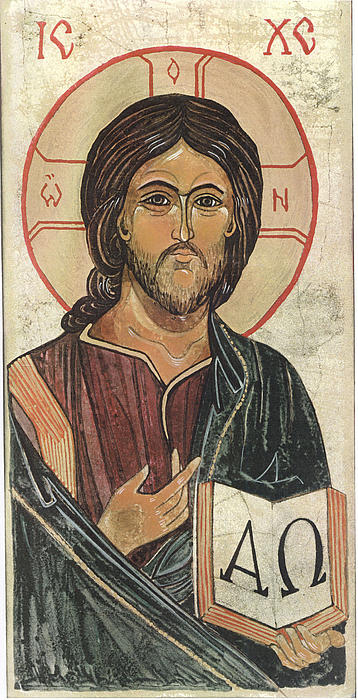Love God First
13th Sunday in Ordinary Time (A)
click here for readings
Jesus sometimes says things that we must assume He knows will be shocking. He tells us to pluck out our eye and cut off our hand if these parts of our body cause us to sin. He says we have to eat His flesh and drink His blood. When one man wanted to wait to follow Jesus until after he had buried his father, Jesus told him, “Let the dead bury the dead.” Jesus knows how shocking these things sound to us. He’s shaking us up in order to draw our attention to the deep truths that lie behind these unsettling statements.
This Sunday’s gospel gives us one of these shocking statements from Jesus. He tells us, “Whoever loves father or mother more than me is not worthy of me, and whoever loves son or daughter more than me is not worthy of me.” Matthew’s gospel gives us the tame version of this saying. In the parallel passage from Luke, Jesus says we should hate our father, mother, sisters and brothers.
Is Jesus actually telling us we should hate our family members? Is He telling us to break the fourth commandment, which says we are to honor our fathers and mothers? Of course not. God is Truth and He would not contradict Himself by telling us to violate one of His own commandments. And God is Love, and so He certainly wouldn’t command us to hate anyone. So what is going on?
Jesus does not say it is wrong for us to love our parents or our children. What is wrong is if we love them more than we love Jesus; more than we love God. Why would that be wrong?
If we return to the commandments, the fourth commandment instructs us to honor our father and mother. But the very first commandment, the most important commandment of all, tells us that we should place nothing above our love and adoration of God. “Thou shall have no other gods before Me.” The first commandment is the first commandment because God is always first in order of precedence. He is maker of all things. He is before all else. It is through Him that we all have our being. It is right that He comes first in the order of love. This is why Jesus summarizes the ten commandments by saying that we must first love God with all our heart, mind, soul and strength, and then after that we must love our neighbor as ourselves.
God is Love. This means if we love something or someone more than God, we are loving them more than love. How can you love something more than love? It would have to be, by definition, a disordered sort of love — something which resembles love, but which fails to rise to the full meaning of love. For love to be true love at all, it must always begin with God, and flow back to God. Love for God must always come first.
So when Jesus wants to teach us this truth, He does not say that we must love God more than vice or sin. Of course we must love God more than these things. That would be obvious. What Jesus does to drive the point home — to shock us into seeing just how important it is for us to love God first — is to instruct us to love God more than the very people we are called to love most in this world.
As a parent I cannot imagine loving anyone more than I love my kids. I have talked with many students who are close to their parents who have a hard time when they get to this saying of Jesus. “I just don’t know how I can love anyone more than my mother,” they tell me. But at some point they realize that if they really love their mother, in order to love her well, they have to love God more than her. As a Catholic parent, I know that the best way for me to love my kids is to be a good father to them, and I can’t do that unless I put God first in my life. God must always come first.
This is because the God who is Love is the source of all love. By loving God first, we allow God to teach us how to love as we ought. We learn to love as God loves. Because as much as you may love your parents, and as much as I may love my children, there is one thing that is undeniably true — God loves them more. We can only love them with a finite and fallible human love. But God’s love is perfect. God’s love is infinite. God’s love is eternal. God’s love never fails.
When we love God first, we love not only God, but everything that God loves; not with our weak human love that is a pale reflection of the divine love, but with God’s eternal love flowing through us. It is one of the wonderful ironies of our Christian faith that by loving God more than we love our family and friends, we begin to love our family and friends much more than we ever imagined we could before. Ultimately, loving God more than we love our family doesn’t mean loving our family less — it means loving them more.
So when you come to a passage like this in the gospel that at first seems hard, difficult, or even scandalous, don’t be afraid. Don’t pass it by or write it off. Look for the truth that Jesus is trying to open your eyes to see. And trust in His divine love for you.



